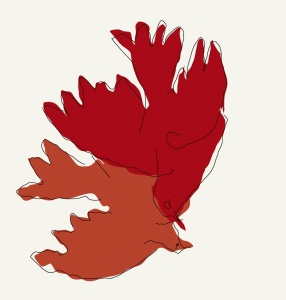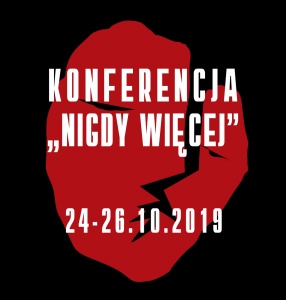Justyna Balisz-Schmelz. East German Requiem
Art Against War and Fascism in the 20th and 21st Centuries
The first part of the conference “Never Again” entitled “Art Against War and Fascism in the 20th and 21st Centuries”, takes up the debate underway in the field of art and elsewhere on the forms of engagement by the artistic community and cultural institutions in historically crucial moments.
Presentation abstract: "East German requiem. A defiant antifascism in East Germany"
Germany after 1945 was a veritable laboratory of post-war struggles with the legacy of fascism, in political, social and cultural dimensions. The bitterness of defeat was felt there just as strongly as the relief of liberation, the fate of victims was interwoven with the biographies of the executioners, and the fronts of the Cold War met over the heads of the residents. The slogan of antifascist/democratic renewal, ideologically uniting post-war Germany during a process of deepening ideological polarization, survived in the GDR as a political and cultural weapon for undercutting the “capital of moral superiority” of West Germans. While tailored to the needs of party propaganda, it created a strong ethical imperative encouraging East German artists to wrestle with themes increasingly deemed taboo in West Germany, in direct proportion to the country’s growing economic prosperity.
Justyna Balisz-Schmelz
art historian and critic. She is an art history graduate of Jagiellonian University, where she completed her doctorate in 2015 under the direction of Dr Maria Hussakowska. In 2005–2010 she studied art history and theatre at the Humboldt University of Berlin and the Free University of Berlin. She has published works in such journals as Przegląd Zachodni, Jahrbuch der Deutschen Akademie der Wissenschaften zu Berlin and Zeszyty Artystyczne, and in the book Display. Strategie Wystawiania (Display: Strategies of Exhibition, Universitas 2012). She is the author of several commentaries in exhibition catalogues as well as dozens of critical texts in such journals as arteon, Obieg, Szum and Fragile. She also does translations from German on the history and theory of art. She has worked with the International Cultural Centre in Kraków, the Kraków Forum of Culture, and the Centre for Historical Studies of the Polish Academy of Sciences in Berlin. She lectures on cultural studies at Jagiellonian University. Her research interests focus on the possible applications of cultural theories of collective memory in the field of the visual arts, particularly in German art after 1945.


